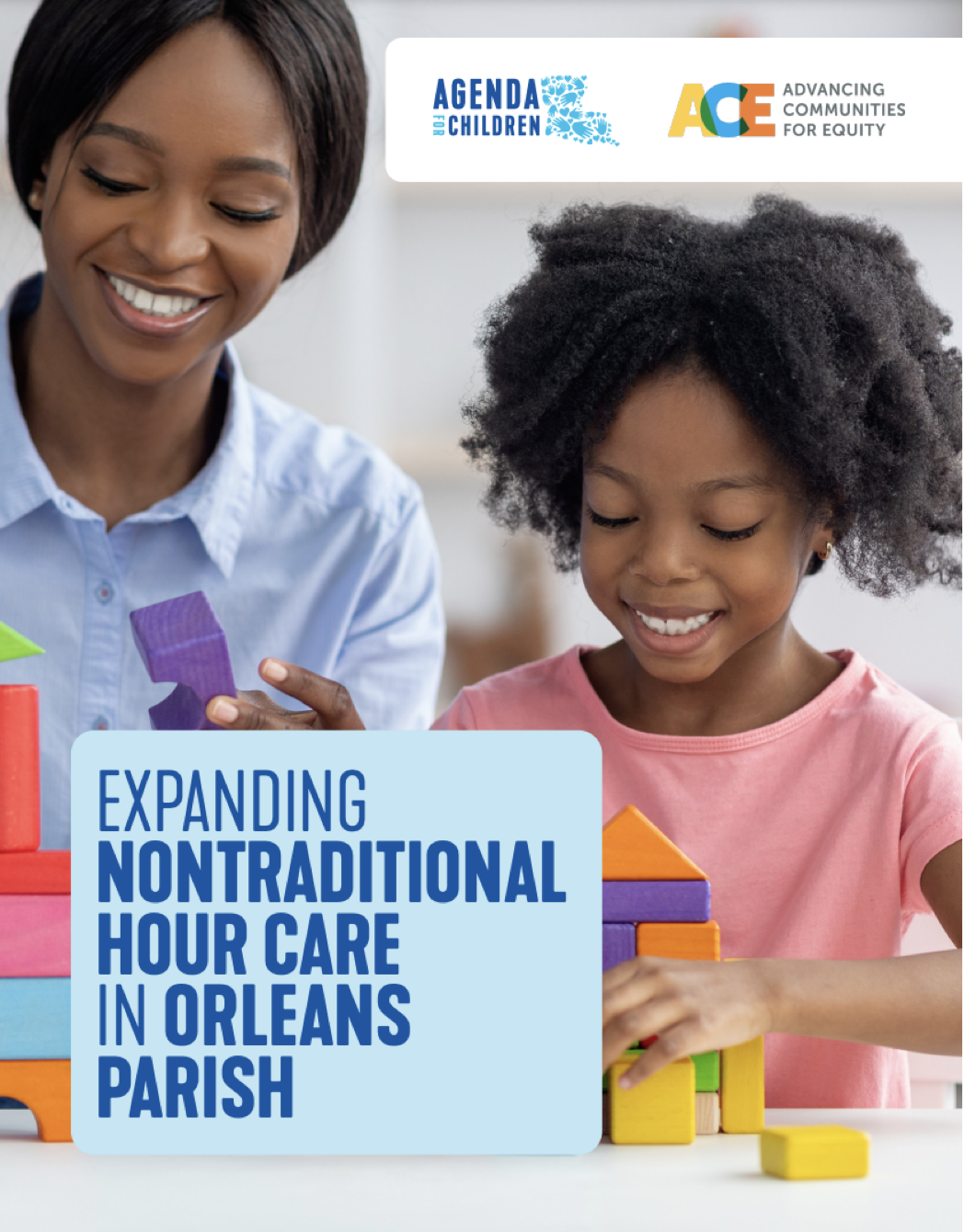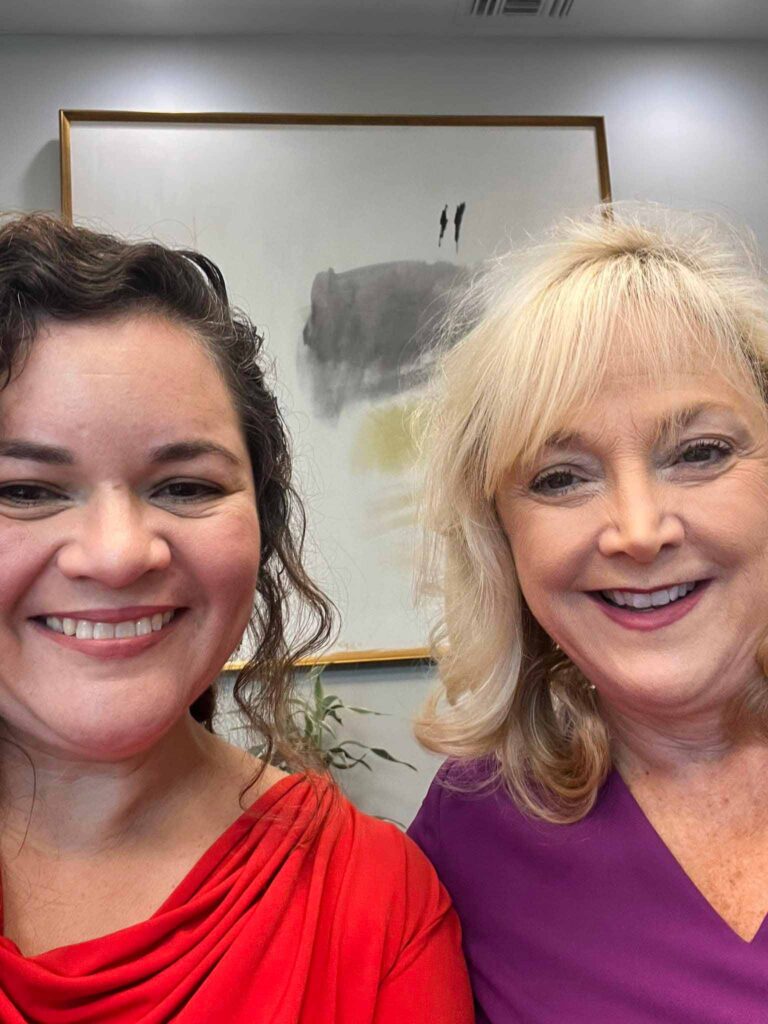In the spring of 2023, Advancing Communities for Equity completed a study of NonTraditional Hour (NTH) child care in Orleans Parish for partner Agenda for Children. The landscape analysis and stakeholder engagement process uncovered how a lack of access to quality care during evenings, early mornings, and on weekends negatively impacts child development, financial mobility for families, and staffing for employers. Early childhood teachers and providers were curious yet cautious about NTH care, given the current staffing crisis.
Fortunately, there are some innovations in state funding and technology that can help incentivize and facilitate NTH care for families. These include increased subsidies and apps that give families to use child care benefits and subsidies flexibly (we are big fans of Helpr). Learn more by reading our report and toolkit (for center directors), and look for a series of briefs for early educators, policy leaders, and employers. Feel free to contact us with questions at Emmy@aceforus.com.



